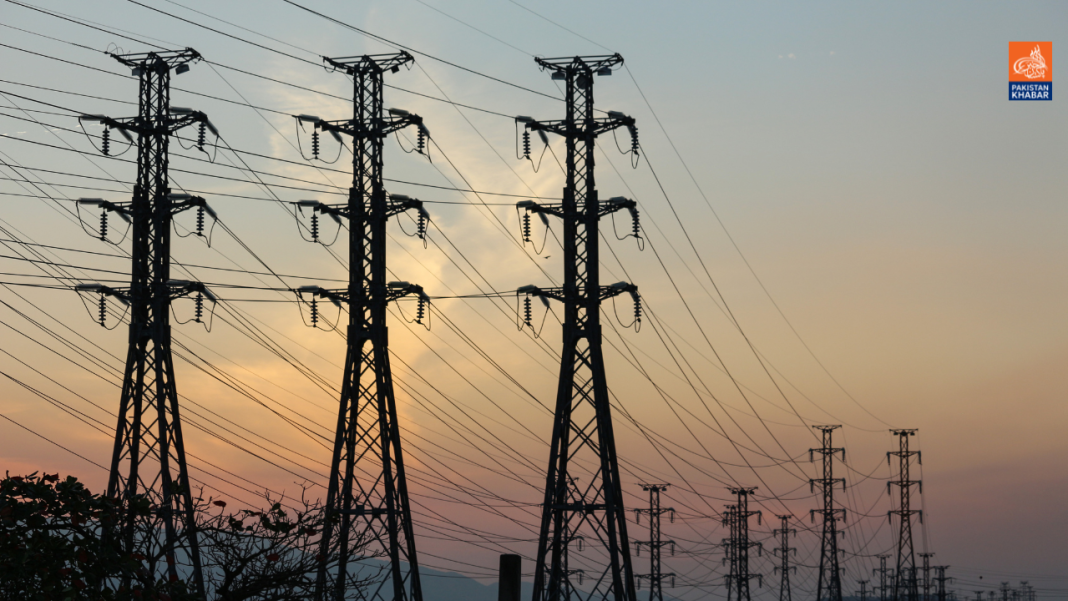Pakistan’s former cabinet members, main negotiators of China-Pakistan Economic Corridor (CPEC) energy deals, and industrialists have proposed several measures to reduce electricity prices, including declaring political force majeure through legislation to cancel some contracts.
During the Grand Debate on Energy Crisis hosted by Express News, six seasoned participants agreed that failing to address the high electricity bills could cause the system to collapse. Express News anchorpersons Shahbaz Rana and Kamran Yousaf moderated the debate on Sunday.
Former Power Minister Khurram Dastgir Khan, former Power Secretary and key negotiator of the CPEC energy deals Younus Dagha, former Special Assistant to Prime Minister on CPEC Affairs Khalid Mansoor, patron-in-chief of Pakistan Textile Exporters Association Khurram Mukhtar, North zone chairman of All Pakistan Textile Mills Association Kamran Arshad, and energy sector expert Arshad Abbasi participated in the discussion.
With power tariffs soaring to nearly Rs70 per unit, including a capacity payment of Rs18 per unit, public discontent is growing over exorbitant electricity bills and rampant inflation. Since August 2023, the country has witnessed a wave of protests against escalating power costs amidst political, economic, and constitutional turmoil.
Social media has become a battleground for discussions on inflated power tariffs, with citizens venting their frustrations and pressing the government for solutions.
Shahbaz Rana opened the debate by outlining key drivers behind the tariff hikes, such as capacity payments, net hydel profit payments, gas price volatility, transmission challenges, guaranteed minimum load factors of power plants, nuclear plant capacity issues, and massive circular debt. He noted that while all these elements contribute to consumer bills, discussions have primarily focused on capacity payments.
Former Power Minister Khurram Dastgir Khan rejected the notion that the 2015 energy policy was the cause of the current crisis, stating that “there is no energy crisis; rather, it’s a crisis of payment for the energy being produced.” He defended the policy, highlighting that it was formulated to tackle the energy crisis when people faced 18-hour-long power outages, and no one was ready to invest due to security concerns.
Dastgir emphasized that although there is an abundance of electricity, the real issue is whether it can be transmitted to consumers at a minimum cost. He mentioned that while the government has tried to renegotiate with Independent Power Producers (IPPs), only some agreed.
Dastgir proposed solutions, including parliamentary scrutiny of contracts, eliminating capacity charges for government plants, transitioning to solar and nuclear energy, banning electricity generation from imported fuel, and ending payments in dollars. He noted that in winter, power generation is around 12,000 megawatts (MW), while in summer, it rises to 32,000 MW, necessitating capacity payments to bridge the gap.
Former Power Secretary Younus Dagha supported Dastgir, noting that the 2015 energy policy was globally available but only China was willing to invest in Pakistan. He emphasized that Pakistan faces more of a power-price crisis than a power crisis, highlighting the need for NEPRA to address overpricing issues.
Dagha suggested abolishing taxes on electricity bills to reduce costs, although he acknowledged the difficulty of telling the IMF that the government would forgo Rs250 billion in taxes from electricity consumers.
Former SAPM on CPEC Affairs Khalid Mansoor pointed out that 38% of power generation used to come from furnace oil, the most expensive source, and that local investors were invited for dollarized returns. Mansoor noted that 45% of capacity payments go to government-run power plants, 40% to CPEC-established plants, and 15% to private IPPs.
Mansoor suggested addressing electricity theft, transmission, and distribution losses, which could potentially provide Rs11 relief per unit. He also urged the government to negotiate with commercial banks about interest rates on loans to IPPs.
Khurram Mukhtar, patron-in-chief of the Pakistan Textile Mills Association, stressed the need for a “forward-looking approach,” suggesting an accountability commission and rationalizing the Return on Equity (ROE) of government plants for immediate relief.
Energy expert Arshad Abbasi noted that Pakistan went for available options a decade ago instead of better-technology-equipped coal power plants. He criticized the increase in idle capacity payment via the 2015 energy policy and called for learning from past mistakes.
Kamran Arshad, president of All Pakistan Textile Mills Association (APTMA) Punjab, highlighted the increase in electricity tariffs by 200% and gas tariffs by 250-275% in the past two years. He noted that high tariffs make it difficult for Pakistan to compete with neighboring countries.
Arshad recommended setting up a competitive energy market and called for a forensic audit of inconsistencies in IPPs’ workings, emphasizing the need to address corruption in the sector.




